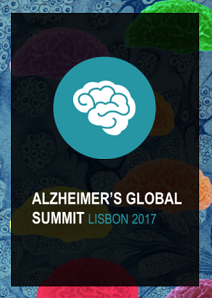 Volver al principio de la página
Volver al principio de la página
Modelo de atención centrado en la persona en atención residencial = Model of care centered on the person. Experiencie Matia Foundation
Información documento
Tipo:
Catalogación:
- Videoteca
- Videoteca, Conferencias
Autor:
Mayte Sancho
Idioma:
Fecha de Publicación:
Editorial:
Global Summit Alzheimer
Descriptores:
- Atención Centrada en la Persona
- Demencias
Resumen:
Vídeo de la conferencia de la Dra. Mayte Sancho (Fundación Matia), titulada «Model of care centered on the person. Experiencie Matia Foundation», que tuvo lugar en las instalaciones de la Fundación Champalimaud durante el Global Summit Alzheimer's Research & Care Lisbon 2017.
En esta ponencia se destaca la necesidad de pasar de modelos residenciales tradicionales, a la promoción de un conjunto de iniciativas, en las que los entornos domésticos y la atención centrada en las personas conforman los ejes centrales de un modelo para mejorar la calidad de vida de las personas con demencia.
Abstract:
In countries of Anglo-Saxon and Scandinavian tradition, several decades ago it was assumed the need to move from traditional residential models from a combination of cultures, traditional disciplinary hospital and hotel, to the promotion of a set of initiatives in which the domestic environments and the attention centered in the people form the central axes of a model of lodging and of life of quality for people with dementia. In fact, research from different disciplines around the housing paradigm on the aspects that actually construct the "sense of the home concept", the perception of the "home" occupy an important part of the gerontological scientific literature, which tries to improve the quality of the daily lives of people in nursing homes (Calkins M, 2008, Hund et al 2015).
There is sufficient evidence to conclude that "home" housing, with a limited group of residents, stable staff and in which daily activities are performed according to the wishes of the residents, have beneficial effects for residents, families and workers.
Spain, already in the 1990s presented such initiatives, as a proposal for a distant future. But it was a priority to build a residential model professional, and some quality, non-existent at that time. It is now when initiatives begin to proliferate that, while respecting the relevance of the clinical and care aspects of residential care, are giving way to others that revolve around the postulates of the person-centered care model.
Since 2010, Matía Foundation (created in 1859) has played an important role in this process of sustainable cultural change (Pionner Network), which responds to the expectations of people who today and in the future want to be treated with professionalism, but also with dignity and "at home".
Observaciones:
Vídeo de la conferencia




















